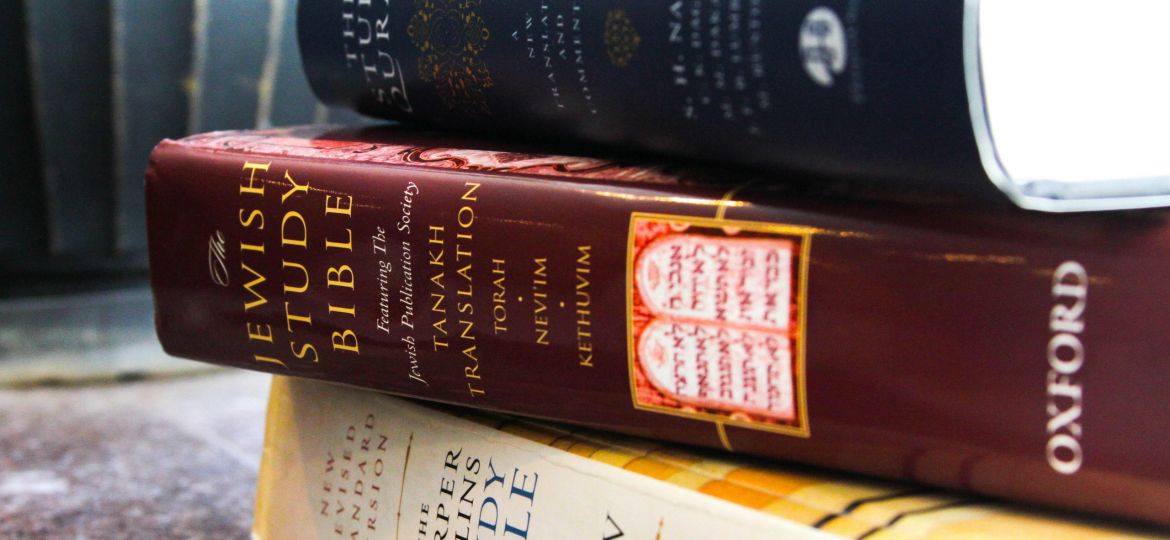
For the first time in the history of the College, St. Olaf hired a rabbi to be a part of its campus ministry staff. Rabbi Shosh Dworsky was hired January 2019 with a planned start date at the beginning of second semester. The Lutheran Center for Faith, Values and Community provided the necessary finances to hire Dworsky, Vice President for Mission Jo Beld wrote in an email.
Dworsky, who has worked as the Associate Chaplain for Jewish and Interfaith Life at Carleton College since 2005, is a Conservative Rabbi. In an email to Jewish members of the St. Olaf community, Dworksy described the Jewish Conservative Movement as “one of the progressive movements in Judaism, oriented toward making traditional Jewish learning and practice meaningful and doable in the modern world.”
College Pastor Matthew Marohl said he was excited about Dworsky joining the College community.
“I think one thing [Dworsky] will bring is spiritual leadership to Jewish students, which is great because with everything from high holidays to Torah studies, she will be able to provide a kind of expertise that I never could,” Marohl said.
Dworsky will work part-time at St. Olaf while maintaining her position at Carleton. Jewish services and holy day events will be celebrated at Carleton with financial assistance from St. Olaf, and Dworsky will provide personal spiritual consultation and Torah study at St. Olaf, Marohl said.
Some Jewish students at St. Olaf said they are content with the hiring of Dworsky.
“I am thrilled,” Evan Reifman `19 said. “It represents an unprecedented step and change in the lives of the Jewish students here. It is going to be very affirming to have someone who understands our ethnic and cultural needs at our back in administrative issues and simply for guidance when we don’t feel like going to a pastor.”
Rebecca Driker-Ohren `22, another Jewish student, agreed with Reifman. She said it has been difficult not having a rabbi on campus up until this point.
“I definitely have felt disheartened this year having to go to Pastor Matt and Pastor Katie for things that someone of a different religion and different cultural background than me can’t understand,” Driker-Ohren said. “It’s frustrating that for the Hanukkah dinner we had to get money through the Pastors, and Pastor Matt had to take us grocery shopping for that. So I think just having someone who understands us and is looking out for our best interests will definitely be significant and very positive and very affirming for the Jewish students at St. Olaf.”
Several College offices are involved in the hiring of new members of the St. Olaf Ministry Staff. These include the Human Resources Department, President David Anderson ’74, Marohl and Associate College Pastor Katherine Fick and the Advisory Board for the Lutheran Center for Faith, Values and Community. All of these entities are dedicated to increasing inter-religious activity and programming, Marohl said. Because the Lutheran Center for Faith, Values and Community aims to provide increased resources, Pastor Marohl said St. Olaf’s Ministry Team may soon expand further.
“I would be confident that it’s realistic that in the fall that we would have someone that would be a Muslim chaplain,” Pastor Marohl said.
The Lutheran Center, interfaith
The Lutheran Center for Faith, Values and Community, which financed the hiring of Dworsky, was established in fall 2018. The center receives its funding from a variety of donors, most notably from St. Olaf Regent Tim Maudlin ’73 and his wife, Jan Maudlin ’72, who donated $1 million to the Center.
According to the St. Olaf website, “The Lutheran Center for Faith, Values, and Community will provide new opportunities for students, faculty, staff, and alumni to connect with each other around the big questions of belief, meaning, purpose, and life choices.”
While content with the center’s aid in hiring Dworsky, Driker-Ohren and Reifman expressed frustration with the center’s name.
“It [the center] is labeled as Lutheran when, as we know, Martin Luther was a raging anti-semite,” Driker-Ohren said. “Also, labeling the Center as Lutheran automatically takes away the identities of other religions in that center and devalues them.”
Reifman agreed.
“The fact that it’s called that completely negates the fact that Jewish people had those values first, Muslims had those values after, and people had it before the Jews,” Reifman said.
Marohl acknowledged the potential distaste for the name.
“I think a lot of people, when they hear Lutheran center, assume it means center for Lutherans,” Marohl said. “What we will have to prove in the early programming is that Lutheran Center means a center committed to saying, ‘what does this college, with its Lutheran tradition, want to look like in 2019?’ And that means a Lutheran center in 2019 is interreligious.”
Despite this, Reifman and Driker-Ohren do not see utility in the center’s name.
“What does the name do for it?” Driker-Ohren said. “We already know it’s a Lutheran school.”
According to Pastor Marohl, the center hopes to eventually have a physical location and collaborate with the Taylor Center for Equity and Inclusion.
“I think that bringing a Rabbi in part-time is definitely a step in the right direction, but I think a much larger change needs to be made to make this school more inclusive of Jews and people of all religious identities,” Driker-Ohren said.
















